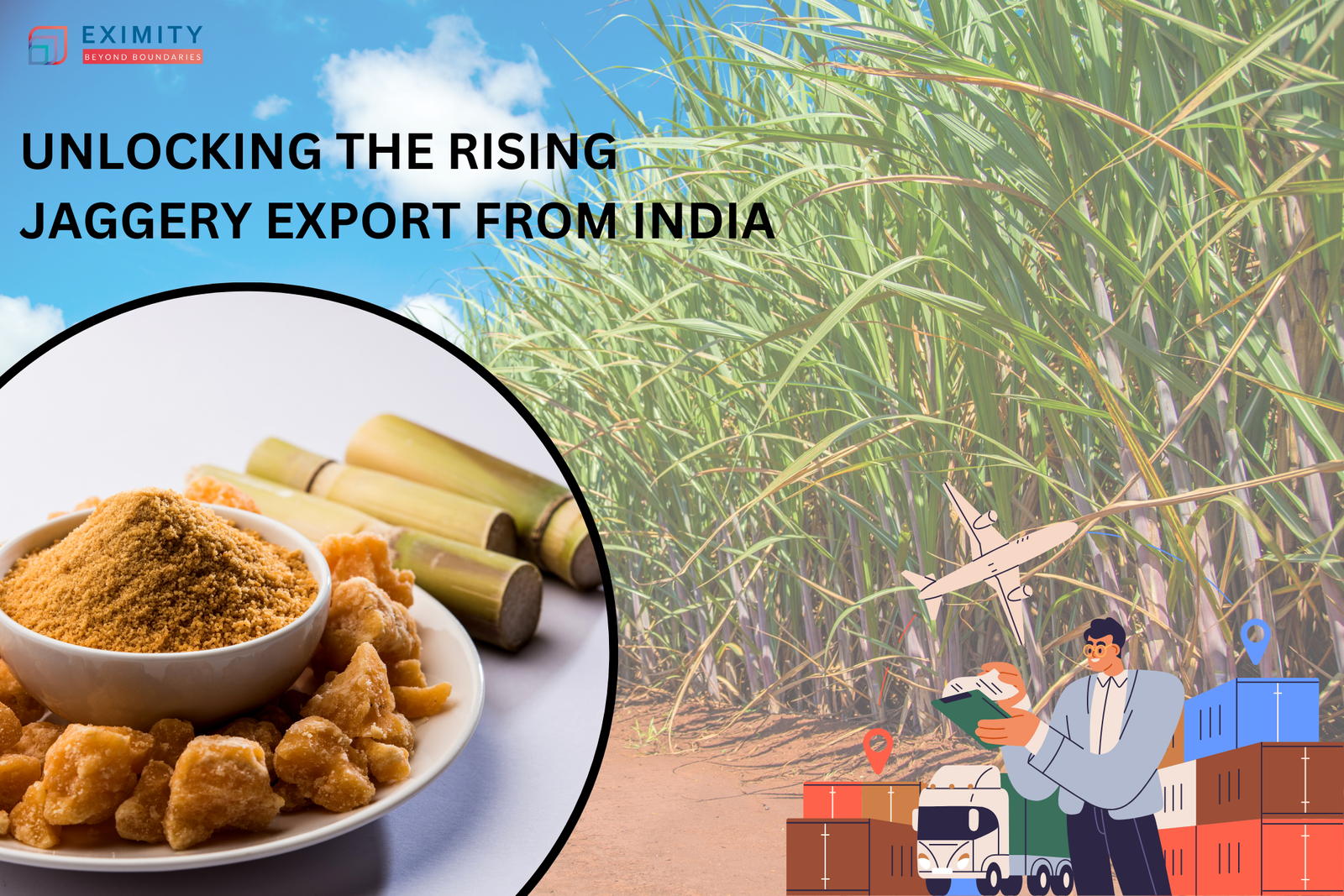Jaggery is that traditional, unrefined sugar that is prepared in India either by sugarcane or palm sap. Possessed with a rich caramel flavor, jaggery is used in numerous sweets, beverages, and food items up and down the country. Year after year, India has developed as one of the main jaggery-exporting nations, and the lucrative export business is mushrooming, coinciding with the surging demand in the international market. In this blog post, we will talk about India’s jaggery export business, the factors that make it succeed, key players in the market, and the process of jaggery export from India.
The Emergence of Jaggery Export from India
The largest producers of jaggery in the world come from India, and an imperative share of the country deals with global jaggery exports. Jaggery export from India is an industry that takes place in the country, and India exports jaggery to its customers in countries like the United States of America, the United Kingdom, Middle Eastern countries, and Southeast Asian Countries. The growing health consciousness around the world has boosted demand for jaggery, which is considered a healthier counterpart to refined sugar due to its higher nutrient content. Iron, magnesium, and antioxidants abound in jaggery and have some of the health benefits that make it a natural sweetener. Digestion and detoxification are among the health benefits derived from it.
Where is Jaggery Manufactured in India?
Jaggery is mostly manufactured in sugarcane-growing regions, mainly in the states of Uttar Pradesh, Maharashtra, Tamil Nadu, Karnataka, and Bihar. These regions have been doing this business for years since sugarcane is cultivated in large quantities here. Other than sugarcane, in a few regions of India, especially in southern states, date palm juice is also utilized to manufacture jaggery.
The juice extracted from sugarcane or palm is boiled and then reduced to a thick syrup in the production process. After cooling and solidifying it into blocks or lumps, the jaggery is then packaged and processed to be exported. Where is jaggery made in India can be answered with an identification of primary regions, where the favorable climate conditions along with the advanced methods of production guarantee that jaggery is produced of good quality.
Export Process and Price of Jaggery from India
The process of jaggery export from India is a multi-step process for the treatment of jaggery to achieve international quality standards. Once the jaggery is produced, it is packed with utmost care and shipped to different countries. It is further important to state that packaging plays a pivotal role in keeping the fresh quality of jaggery as it is highly prone to moisture and heat. Generally, jaggery is exported in the form of blocks, lumps, or power according to the choice of the buyer. Jaggery powder export from India is the most sought-after item because it is easy to dissolve in water and can be added to almost any recipe.
As far as the jaggery export price from India is concerned, it depends mainly on the parameters like quality and type of jaggery, and transportation cost as well. The price of jaggery is between $1 to $4 per kilogram at the market depending on how it has been packed. Organic jaggery attracts a premium price due to the fact that it is made with no application of chemicals. Exporters can pack jaggery in bulk quantities or smaller packaging for retail according to the intended market.
To gain international standards compliance, the exporters also follow quality standards with food safety and hygiene practices. Many jaggery exporters in India follow all the guidelines of the Food Safety and Standards Authority of India (FSSAI) to make sure that the jaggery they export reaches the highest level.
Role of Jaggery Exporters in India
Exporters of the jaggery industry: Exporters in the jaggery industry form an essential category that is growing the Indian jaggery market. Organizations export jaggery from India as they prefer to relate closely with the manufacturers of jaggery to obtain the finest quality of jaggery and, accordingly, supply it to international buyers. Organic jaggery exporters: Some of the vital exporters have specialized in organic jaggery, which is rapidly gaining takers in the Western markets. Such exporters usually cater to the needs of international customers by providing quality orders on schedule.
Rice Export from India: A Comprehensive Guide for New Exporters
Challenges and Opportunities in the Jaggery Export Business
The jaggery export business in India is not unchallenged. The first and foremost issue the exporter faces is competition from other countries who prepare jaggery, namely Pakistan and Thailand. The other area demanding quality controls as well as production processes compatible with international standards calls for an ongoing investment in production and processing facilities.
Conclusion
Indian jaggery export is the leading sector because both the traditional techniques of production and modern innovations in this line have borne fruit. As the consumption of natural sweeteners is on the rise across the world, India’s place among the producers and exporters of this sweetener is only going to improve.
From lumps of jaggery, through blocks, and finally reaching jaggery powder export from India, be it, but several products coupled with that organic and chemical-free attraction of jaggery form a bright shining industry of export. Helping businesses take the expertise services of those jaggery exporters in India, business finds its way towards a promising global market of exporting through this newly seen prospect of jaggery exportation.

